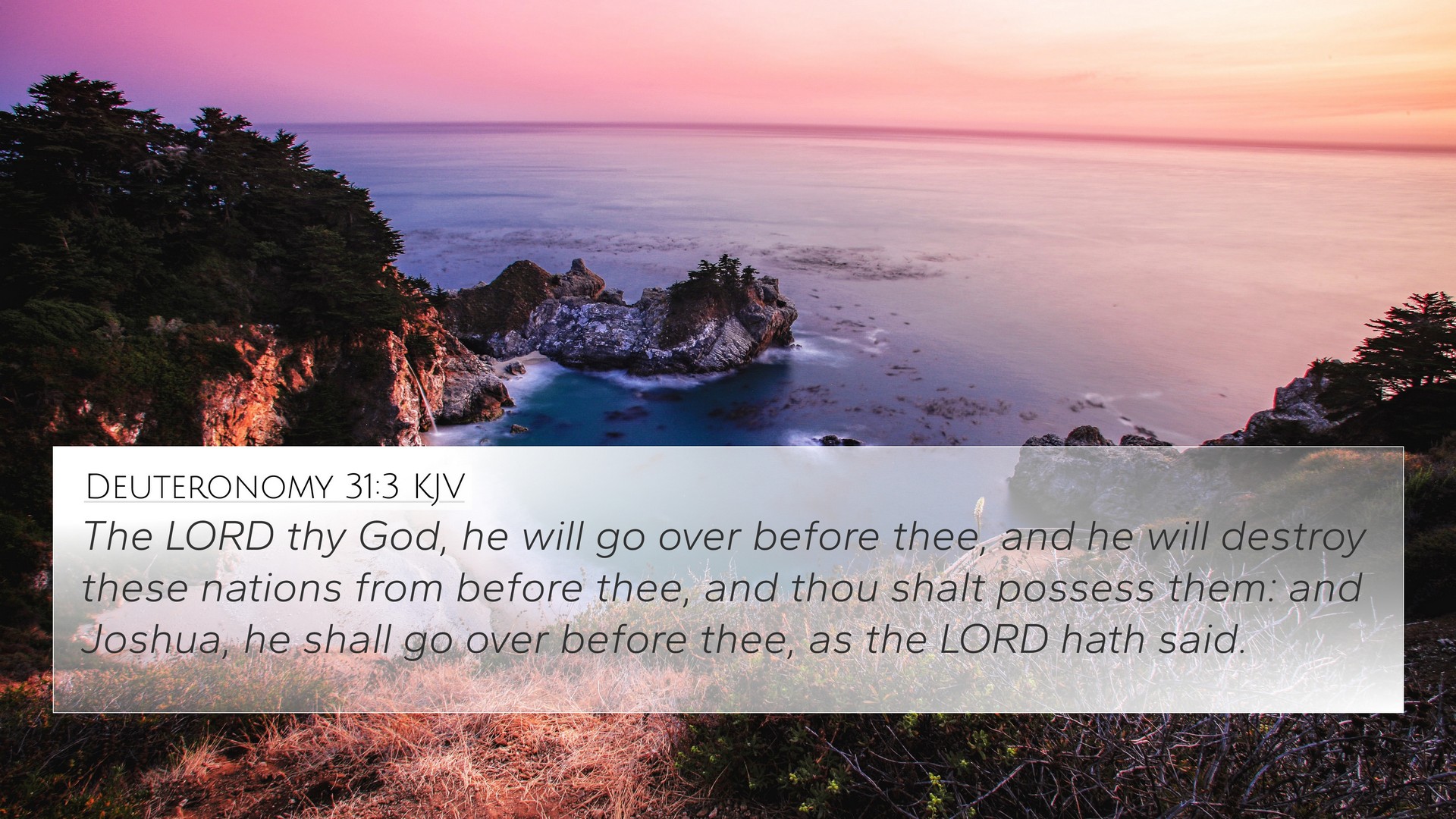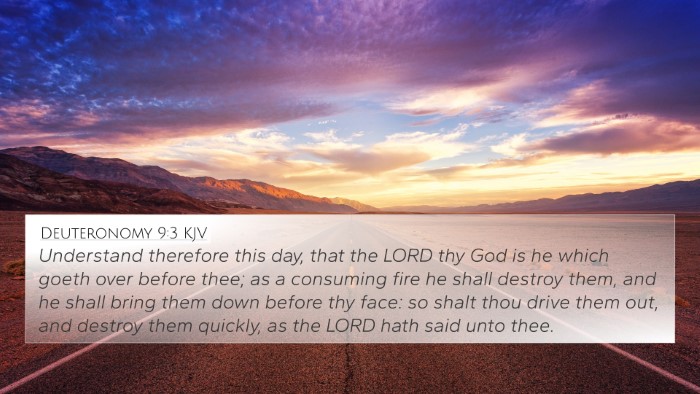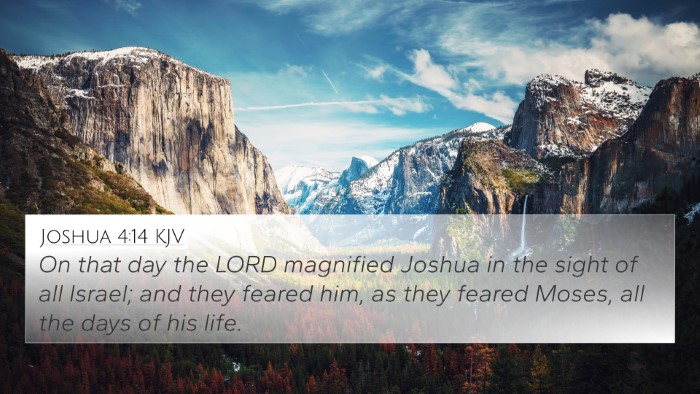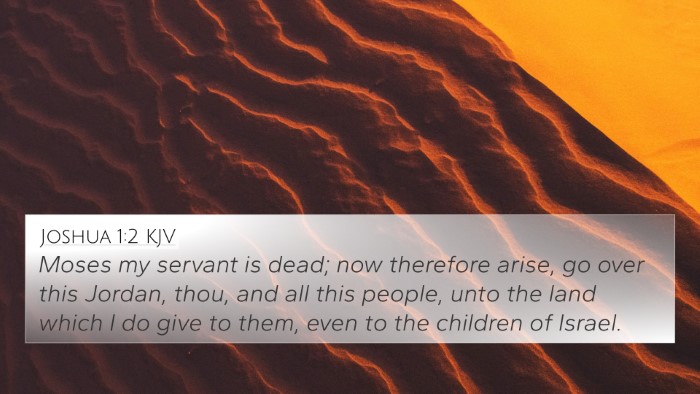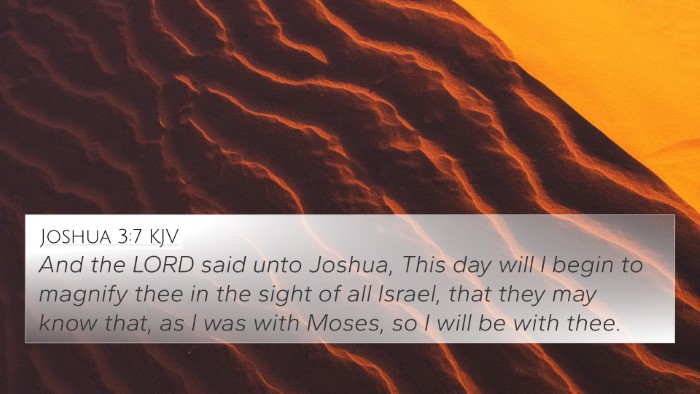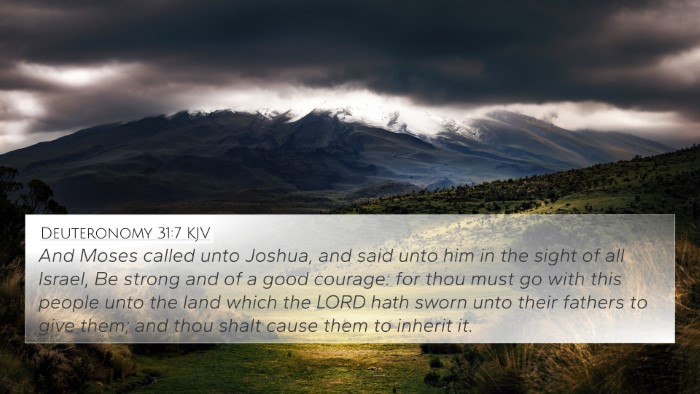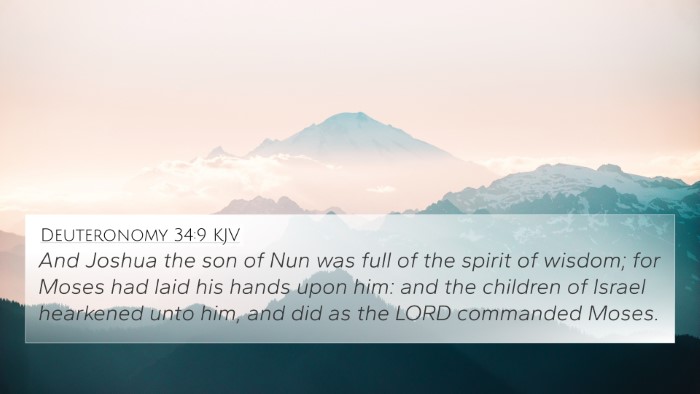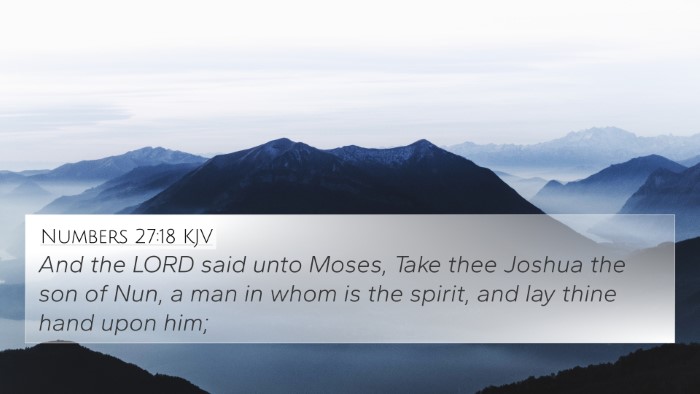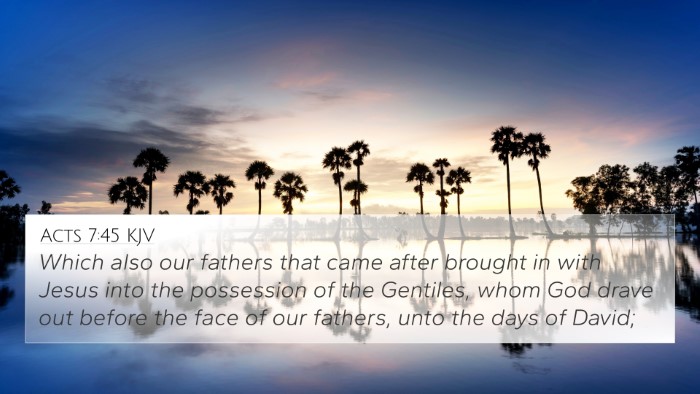Understanding Deuteronomy 31:3
Deuteronomy 31:3 states: "The LORD your God himself will go over before you. He will destroy these nations from before you, and you shall dispossess them. And Joshua will go over at the head of the people." This verse highlights a crucial point in Israel's journey as they transition to life in the Promised Land under the leadership of Joshua.
Context and Historical Significance
The context of this verse occurs during Moses' farewell address to the nation of Israel before his death. Moses is reassuring the Israelites about God’s continued presence and support as they prepare to enter Canaan. This moment encapsulates the transition of leadership from Moses to Joshua, emphasizing that God will guide and fight for them.
Interpretations from Commentaries
-
Matthew Henry:
Henry emphasizes the assurance of God's leadership, noting that despite the challenges, Israel can trust in His promise to go before them. The Lord’s direct action in leading and destroying their enemies is portrayed as a part of God’s covenant faithfulness.
-
Albert Barnes:
Barnes elaborates on the critical role of Joshua, highlighting the importance of his leadership in this new phase. He connects this transition to God's promise to be with His chosen leaders, a reassurance that continues through biblical history.
-
Adam Clarke:
Clarke draws attention to the significance of God’s direct engagement in the Israelite conquest, underscoring that the victories in Canaan were not due to their strength but God's providential care. He emphasizes the need for faith and obedience from the people as they follow Joshua.
Key Themes and Biblical Connections
This verse illustrates several important biblical themes such as God’s faithfulness, divine leadership, and the empowerment of leaders to guide God's people. Here are some thematic connections:
Cross-References to Deuteronomy 31:3
- Joshua 1:9: "Have I not commanded you? Be strong and courageous. Do not be frightened, and do not be dismayed, for the LORD your God is with you wherever you go." - This verse reiterates God's promise of presence and encouragement for Joshua.
- Exodus 23:20: "Behold, I send an angel before you to guard you on the way and to bring you to the place that I have prepared." - God's assurance of protection as they journey.
- Isaiah 41:10: "Fear not, for I am with you; be not dismayed, for I am your God; I will strengthen you, I will help you." - A thematic link to God’s continual support for His people.
- Romans 8:31: “What then shall we say to these things? If God is for us, who can be against us?” - A New Testament parallel reflecting God's support in times of uncertainty.
- Psalms 46:1: "God is our refuge and strength, a very present help in trouble." - This supports the notion of reliance on God during challenges.
- Hebrews 13:5: "For He Himself has said, 'I will never leave you nor forsake you.'" - An affirmation of God's unwavering presence.
- Romans 15:4: "For whatever was written in former days was written for our instruction, that through endurance and the encouragement of the Scriptures we might have hope." - Reflecting the purpose of Old Testament narratives.
Conclusion
In summary, Deuteronomy 31:3 serves as a profound reminder of God's unwavering presence in our lives, the importance of leadership, and the call for faith as we navigate life's challenges. By understanding this verse through the lens of historical context and thematic connections, we gain deeper insight into the nature of God's promises and the relational dynamics between God, His people, and their leaders.
Exploring Inter-Biblical Connections
This verse allows for an exploration of inter-Biblical dialogue, as it connects not only to the immediate historical context but also to a wider theological narrative across both the Old and New Testaments. The connections between Biblical texts enhance our understanding and encourage deeper study of God's Word.
Tools for Further Study
For those looking to delve deeper into the spiritual meanings and connections of Scripture, consider utilizing:
- Bible concordance: Helps locate specific verses and their occurrences.
- Bible cross-reference guide: Offers insights on related verses for thematic study.
- Bible reference resources: Provides comprehensive tools for understanding Biblical relationships.
